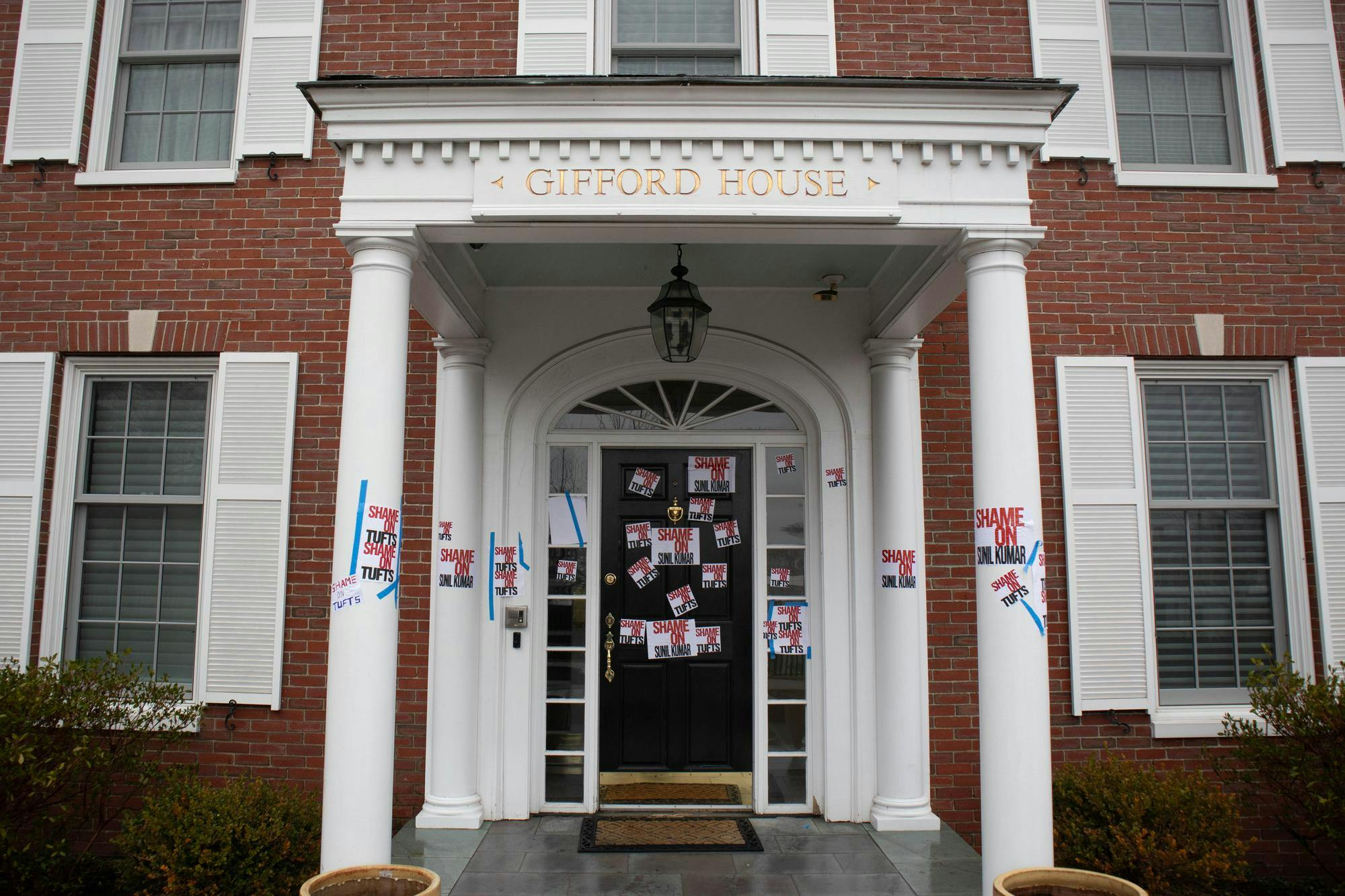Early Monday morning, the Tufts Community Union Senate voted to pass three resolutions pertaining to the Israel-Hamas war, calling for divestments from many companies with ties to Israel, an apology and a change in rhetoric from the administration. Then, Monday afternoon, the administration sent an email to the student body condemning the resolutions and the larger boycott, divestment and sanctions movement. Regardless of one’s stance on the war, one thing is clear: This statement is an insult to the student body and disrespectful to student voices on campus.
The statement comes across as a canned response that ironically fails to appreciate the nuance of students’ ideas, opinions and actions regarding the war. It includes, verbatim, the statement Patrick Collins, Tufts’ executive director of media relations, gave to the Daily in an article published on Monday. Therefore, it seems likely that the administration had prepared a response in advance without taking into consideration how the TCU debate and vote may affect their position. This is reflected in the way the statement seems to address the first resolution about ending study abroad programs in Israel. “We wholeheartedly support academic freedom and all our academic and exchange programs,” the administration said — even though the motion wasn’t adopted. Rather than respecting and engaging with their students' ideas, the administration is simply trying to manage them.
The administration’s complete refusal to engage with the TCU Senate, a body of elected students meant to represent the Tufts community, demonstrates contempt for their own student body. Instead of responding directly to the Senate’s statement that university actions have been unsatisfactory, the administration waffled and simply stated that they will keep doing exactly what they have been doing. Beyond ignoring a representative student body’s call for change, the administration’s wording belittles TCU as an institution, implying that this body of students, who had an extensive, hours-long debate Sunday night into Monday morning, were making flippant, uninformed decisions. “It is our responsibility as an institution of higher learning to educate our students on the complex history of the region and to provide them with the tools to have nuanced conversations rather than rely on slogans, incomplete narratives, or simple yes/no votes,” the administration’s email said — a thinly veiled jab at both the resolutions and students as uneducated and reductionist.
They even took this opportunity not only to rebuke TCU Senate, but also to insult the student body. This letter, in attacking students’ speech and actions, serves as a belittling reprimand to a student body that has repeatedly proved itself as highly involved in an extended, difficult dialogue surrounding the war. Students’ dialogue has not always been civil or moral, but these extreme instances do not change the productive character of many students’ and organizations’ handling of the war. However, the language of this statement demeans the intelligence of the student body and accuses us of being incapable of complex thought or moral judgment.
The ending of the email is most indicative of this attitude. It is extremely important to address all instances of hateful speech on campus, but it is wrong for the administration to use reported cases of hateful speech and action to invalidate the overwhelmingly peaceful protests and discussions around this issue as “[turning] against each other.” This creates the ‘us versus them’ paradigm that is the epitome of the slogans and incomplete narratives the administration is critiquing. In a complex, divisive issue such as this, opposing sides will naturally speak up and take action. I support the administration’s call for civil debate and finding humanity in all groups, but I take issue with the implication that this kind of debate and humanity is absent from our community’s current discussion.
Overall, this response calls into question whether Tufts administration truly has its own students’ best interests at heart. By invalidating our thoughts, opinions and actions; by rejecting our community’s voice in the TCU Senate; and by dismissing the largely rich, complex nature of our community’s handling of the issue, the administration is sending students a strong message. They don’t see us, they don’t understand us and they don’t want to. I hope that, going forward, the Tufts administration, even if they disagree with TCU or the student body, will be more willing to engage with students and have the respectful, productive conversations they are so intent on fostering between their students.






